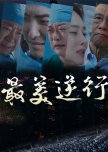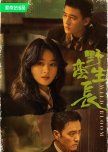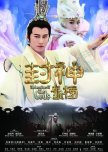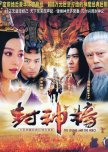 Noodle Cart: Chinese Edition [Sep 2020]
Noodle Cart: Chinese Edition [Sep 2020] - Português (Portugal)
- 中文(简体)
- English
- magyar / magyar nyelv
- Título original: 幸福到万家
- Também conhecido como: A História de Xing Fu
- Diretor: Zheng Xiao Long, Liu Xue Song
- Roteirista: Zhao Dong Ling
- Gêneros: Direito, Vida, Drama
Onde assistir Xing fu dao wan jia
Elenco e Créditos
- Zhao Li YingHe Xing FuPapel Principal
- Liu WeiWan Shan TangPapel Principal
- Tang ZengWang Qing LaiPapel Principal
- Luo JinGuan Tao [Attorney]Papel Secundário
- Zhang Ke YingHe Xing Yun [Xing Fu's sister / Attorney]Papel Secundário
- Cao ZhengWan Chuan Jia [Wan Shan Tang's son]Papel Secundário
Resenhas

家和万事兴 (Jiā hé wànshì xīng) Prosperity Starts from Harmony at Home
家和万事兴 is a motto that is embedded in every Chinese people’s heart. This philosophical adage reflects in their everyday life and is vividly portrayed in this outstanding story. The Story of Xing Fu is partially adapted from Chen Yuanbin's novella The Wan Family's Lawsuit (万家诉讼) which was also made into a movie in 1992, Qiu Ju’s Lawsuit (The Story of Qiu Ju), directed by the acclaimed Zhang Yimou and acted by the gorgeous Gong Li. The earlier story was set around the 1980s when rural life was harsh, and the country’s economic miracle was still at its infancy.In this new story, The Story of Xing Fu, set in the late 2010s, viewers can see the marked improvement of village life compared to the 80s, but the rural-urban differences are still very distinct with the sophisticated urbanites looking down on the poor villagers; the divide is even more brazen now than the old days.
Xingfu (Zhao Liying) is a rural woman who is strong headed and lives life guided by her uncompromised principles of honor and integrity; right and wrong for her is black and white. Though not well educated, she would go all out to find justice when a person’s right is being infringed, for she is a person who would go all out to help whoever needs help. She is fearless to take on the rich and powerful if she needs to, because she believes the rule of law will always prevail. After she marries to a farmer, Wang Qinglai (Tang Zeng) from a neighboring village, she comes to live in the Wan Family’s Hamlet.
The Wan Family’s Hamlet is a settlement founded and led by Wan Shantang (Liu Wei) as the respected village head. The residents there are mostly Wan Shantang’s relatives with Wan (万) as their family name. Hence, the Wang (王) family, Xingfu’s in-laws, becomes an odd-one-out and feels like an outsider. For this reason, the Wang family always keeps a low profile and tries to please everyone especially Wan Shantang, hoping with the village head on their side, they would blend in more easily.
All disputes by villagers in rural China are usually settled out of court through intermediaries such as the village heads. Local police may be involved as a mediator to bring the disputing parties together to come to a settlement. This drama carefully portrays this side of life for most of the Chinese population (majority of the population still lives in the rural areas and small cities).
Therefore, when Xingfu’s husband was accidentally kicked by Wan Shantang in the groin, she is unhappy with such settlement and files a lawsuit against Wan Shantang, something that is out of the ordinary. As things eventually turn out, Xingfu is indebted to Wan Shantang, and the lawsuit is forgotten. But as everything is going smoothly for all, the law catches up with Wan Shantang and he’s imprisoned. Outraged by her action which is seen as being ungrateful by the villagers, Xingfu and her husband are forced to leave the hamlet to avoid their awkwardness at home and become migrant workers in the city.
Chinese families often sacrifice themselves and send family members who have the most potential to the cities to work or for higher education, in the hope that the ones that ‘make’ it would reciprocate and help take care of the rest of the family. The concept of investing in one person and when the person gets wealthy, he/she would help bring up the rest of the people, permeates the whole society. Wang Qinglai and his family work hard and send Wang Qingzhi (Liu Yanchen), Qinglai’s younger brother, to study and work in the city. When Xingfu and Wang Qinglai come to live in the city, Wang Qingzhi is expected to take care of them.
‘Guanxi’ (connection) and ‘renqing’ (favor) are deeply rooted practices of the Chinese tradition. As the government tries to weed out nepotism and corruption, such practices become prohibited especially in the cities. Wang Qinglai doesn’t realize the pressure and predicament he has put his brother in, as such tradition is viewed undesirably in the city. The drama tries to portray realistically the conflicts between the brothers in the job finding process.
There has been massive rural – urban migration in the last 40 years in China, causing unsustainable pressure in the cities. Rural farms are being deserted, children are growing up without their parents, and elderly parents are being abandoned by their city-bound grown-up children. Wan Shantang tells Xingfu that, though it’s a must to leave the village to see the world sometimes, she must not ever forget where home is. After all, life is meaningless if one loses one’s family. These heart-felt words are meant not only for Xingfu, but for all viewers alike: do not lose your family in the pursuit of wealth and materialism. In the end, you may end up with nothing. Silently the writer is telling the viewers that, wherever we may be living, family is where home is.
In this drama, Zhao Liying is not that glamorous girl. She's a typical village woman with unflattering hairstyle and old-fashioned clothing that is worn by most women in rural China. Her growth after living in the city helps her look more sophisticated later as an inn keeper, but most of all, she becomes more flexible and articulate for the well-being of all the residents of the Wan Family’s Hamlet. Zhao Liying’s portrayal is convincing, bringing alive the Xingfu character who initially has a one-track mind and later develops into a savvy business woman with compassion and understanding. She learns that not everything is as clear cut as in black and white; at times, there are the grey areas and she needs to be flexible enough so that everyone can live in harmony, as it goes, “Prosperity starts from harmony at home” and Wan Family’s Hamlet is home.
I really like the amicable, but straight-shooting Wan Shantang character who is kind and upstanding but occasionally impatient and explosive, and Liu Wei’s portrayal is so wonderful and authentic. Acting as his son Wan Chuanjia, Cao Zeng’s portrayal is equally good and believable.
Luo Jin plays a supporting role here as Guan Tao, the lawyer. As always, Luo Jin exudes an affable demeanor and though he’s not the lead here, his character is well loved, and his chemistry with Zhao Liying is wonderful although their relationship is only platonic. All in all, the whole cast puts in the best of their acting and every character has its flaws, and is realistic and believable.
My Verdict
Just as the brutal treatment of the Tangshan (China) girl’s incident came to the attention of world media recently, the airing of The Story of Xing Fu is timely. The beginning episodes of this drama almost eerily replicate what happened in the Tangshan incident and its handling by the authorities. It is sad to see how many similar cases swept under the carpet, each condoned by the society. There is a lot of injustices, class differences, and gender supremacy, which is an on-going issue, and is not unique only to China; it happens in many societies, including in the open west. I'm glad that Zhao Liying took up this project to bring awareness to the injustices in the rural Chinese society where women are constantly suppressed, discriminated, and wronged.
Director Zheng Xiaolong, who also directed the Legend of Mi Yue, one of my most favorite historical dramas, together with Director Liu Xuesong have brilliantly portrayed the lives of ordinary people in everyday rural China where much of the population lives, bringing out their challenges, ironies, and resignations in facing a changing world. The picturesque scenery of the village is breathtaking. This drama has no romance, no nail-biting plots, no mysteries, just plain slice of life. Many viewers may find it boring, but that's missing the point.
Sacrificing individual’s rights for greater good is touted in the Chinese society; benefits for the community is more important than for personal gains, and this value is repeatedly reflected in this drama. Hence, all conflicts here are being resolved through the concept of “prosperity starts from harmony at home” in mind. It is perhaps such simple value that brings the Chinese societies together, and they become united and great overall for the world to envy. This, is the point of the story.
This drama is for viewers who want to learn more about the real face of China, and for viewers who appreciate the beautiful countryside and its tranquility with a laid-back simple lifestyle.
GREAT WATCH!
Esta resenha foi útil para você?

Esta resenha pode conter spoilers
Xing Fu, A One Woman Army
This was my first time watching an urban type of drama and I was watching it for ZLY. I wanted to see how she managed in this genre and she was very convincing. The woman is a wonderful actress and I don't think there's a genre out there she can't do. Didn't watch its parent story nor know the source material, so as usual based from a viewer's perspective only.Pros: Every single character was played exceptionally well by their respective actors. Whether you were rooting for them or wanted them to go to prison, each character was complex in their own way. There was no perfect person, everyone had flaws even Xing Fu herself. She was by far the most favorite character. Followed closely by attorney Guan Tao who I know many felt had better chemistry with XF then her husband, the country bumpkin with no spine Qing Lai. I really hope ZLY and LJ get to do a series again together where they play husband and wife; their on screen support of one another was top notch. XF was the one woman army that got things done and she was a very memorable character for that.
I also loved Xi Yue; she had to go through so much stuff and yet progressed beyond and went towards her dreams. Other favorite characters were more on the sidelines, like the other lawyers at the firm with XF and GT, Qing Zhi and his girlfriend. Also old man Wan, though outdated to high hell, still evolved even at his age. All of the villagers that went from clueless to understanding when to fight for their principals.
Now while the Wang parents and Chuanjia, who were my least favorite not just because of the level of nepotism they were used to and how disgustingly they all acted, but I really feel that they all only had some sort of evolution in the last episode. I didn't like QL in the beginning because he was Mr. Nepotism but I do like the fact that they evolved him to be a pretty good supporter of his wife though it took something like 39 episodes to do.
Cons: Chuanjia is a very complex character not just because he's the main antagonist and really believable which I know makes you wonder why he's in the cons, but it's because of just how much he got away with before the very last episode that finally sent him off to prison. The writing I think is where things went south. With him and the other evildoers, instead of having just a few subplots to make the story move along it was like do something immoral, unethical, compensate a ton of money to make the problem go away; rinse, repeat.
The sheer amount of problems went beyond the norm; starting off with the first assault, stealing land, 2nd assault on QL, identity theft, well water pollution, etc. Breaking promises/coverups, spreading harmful rumors, bullying, it was nonstop. It could have been enough to fill many series instead of squeezing them into one and then waiting until episode 40 to rush around cleaning up 2 out of 35 messes. It's like the writer took every worst case scenario and just stuck them together in this.
The rushed ending was a copout, Chuanjia went to prison but XF was sending him books? Like what kind of punishment is that? So moral of the story is no matter how many people you harm or nearly kill (including kids) just say I'm sorry, give a million bucks, bow, and hey it's all hunky dory? Writing got very sloppy here. It shows that even in present times as episode 40 seemed to happen in 2019, justice is hard won and no one really has any actual regard for the law. That was a really big let down for me personally. I just wish they had incorporated the punishment fitting the crime more and more often.
Would I recommend it? Overall it was a decent drama and ZLY absolutely shone in it, so just for that I would. However, be prepared for justice to be served at the very end and not for everything plus very rushed and half-baked; if that doesn't bother you and you don't mind high blood pressure frequently, you'll enjoy this one lol.
Esta resenha foi útil para você?

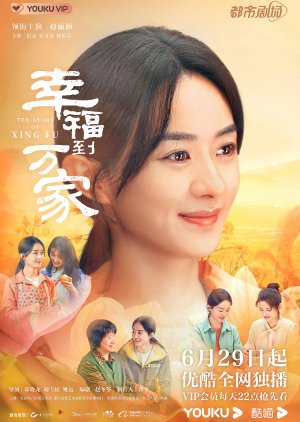
















 1
1